by Jassim Al-Helfi
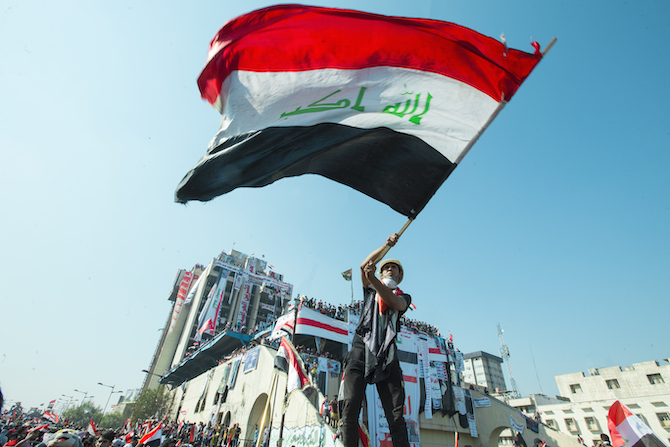
Following the assassination of political activist Ihab Jawad Al-Wazni, a number of political parties including those that emerged after the October Uprising, announced that they would boycott upcoming elections unless certain conditions were met. In statements released to announce the boycott, various parties noted the government’s failure to take any steps to restrict the proliferation of weapons and ensure they are solely controlled by its security apparatuses. They also noted its weakness in protecting activists from threats and assassinations, forcing many of them to flee to Kurdistan or to leave Iraq altogether.
In light of the emergence of the boycott movement, questions have arisen about its benefits and what next step should be taken after the boycott. Others have raised concerns about its potential repercussions especially given that the ruling elite could exploit it to gain parliamentary seats in the absence of rivals, as well as asked whether it is detrimental and indicative of a pre-existing reluctance to participate in elections on the part of demonstrators. And if so, then, why did protesters demand early elections?
In this article, I explain the factors that have led political parties and independent politicians to boycott the upcoming elections, as well as offer insights into the significance of this call. In addition, I examine possible ways forward for the boycott movement.
The Case for Boycott
A careful reading of the statements issued by boycotting parties and their leaders reveals a commitment to democracy expressed not only in the form of elections, but also the state’s ability to protect freedom of expression and guarantee a decent living for its citizens, including housing, job opportunities, education and healthcare, among other rights.
Thus, while it must be affirmed that elections are an indispensable democratic mechanism, the decision to boycott represents an objection to the shortfalls in preparations for the elections, especially in regard to the creation of the necessary electoral environment in which all voters are able to exercise their right to freely choose the candidate they wish to represent them.
While holding early elections was a demand of the protesters that participated in the October Uprisings, it must be noted that they raised it on the basis that a number of conditions should be fulfilled. These included, legislating a fair and equitable Election Law, forming an independent and impartial Electoral Commission, implementing the Political Parties Law, providing a sound electoral environment, putting those responsible for the killing of protesters on trial, holding the most corrupt politicians to account and ensuring that weapons are fully under the control of the state. Those demands were aimed at ensuring the integrity of the elections, so that they could truly become a vehicle of change. They also aimed to open up the space for new forces to enter the executive and legislative branches, as well as to change the balance of forces in the interest of building a state that preserves the dignity of its citizens.
A quick examination of the demands made by demonstrators allows us to see that the political elite have circumvented them all. It is sufficient here to refer to the armed groups that have destabilised security to such an extent that that state apparatus claims that it is incapable of protecting activists and journalists from them. The latest victim of these armed groups was Al-Wazni, who was assassinated on 9 May in Karbala. This took place just a day before an assassination attempt on the journalist Ahmed Hassan in Diwaniyah.
The failure of the Iraqi government to fulfil its duty to create a safe environment in which the elections can take place means, among other things, that it has opened the way for the ruling elite to consolidate its influence and strengthen its presence in power, without facing any official opposition. This is nothing but a clear bias by the government in favour of those in power at the expense of the forces of change.
The decision to boycott the elections reveals the ruling elites’ isolation from the people and their rejection of them. The non-participation of parties and independent figures in the elections will only work to further strip them of any legitimacy. In doing so, it will lay the groundwork for a broad popular opposition that strives to open up an alternative path to change. Faced with this challenge to its power and influence, the ruling elite will continue to use the means at its disposal to counter opposition and attempt to keep all competition for power within formal arenas so that the electoral process can maintain a veneer of legitimacy.
However, the elections will have no meaning if the arena of competition remains confined to the parties of the ruling elite. These parties are responsible for the mismanagement and wasting of public resources. That is not to mention their corruption and the repercussions of their economic and social policies and the poverty, deprivation and unemployment they have produced. Participating in elections designed to once again distribute seats among the existing political elite will only work to perpetuate this crisis. Moreover, it would represent an acceptance of the country’s dire state without holding those responsible to account.
If, as the boycotting parties have argued, democracy cannot be reduced to elections, then boycotting this mechanism when it becomes clear that it has been designed to favour the forces responsible for the destruction of the country and the impoverishment of its people is a political endeavour. The path to change cannot be guaranteed by elections alone, especially in light of the acts of violence, harassment and intimidation that activists have been subjected to.
The Way Forward
Boycotting the elections is a process and not a moment. It is a political and ideological battle par excellence. It requires will and determination, and forces who are focused and know what they want. It requires, as a first step, a broad popular educational campaign so that the boycotters can form a popular base through which they can isolate the political elite and the tools they have used to gain and maintain power. It also requires the positions of the forces that declared the boycott to be coordinated. The second step is the emergence of an oppositional political alliance or front which adopts boycotting the elections as a democratic political option and gives it an objective political framework.
The boycott is not a detrimental position or attitude, rather it is a position that stems from the rejection of the status quo and refusal to accept the way those in power have managed the crises the country is going through, and which have only been deepened through their actions.
It is also opposed to the environment created by the ruling elite, one that does not guarantee justice, fairness or equal opportunities for participation in the elections. Thus, the boycott is not a bad call as some have argued, but rather a lively and organised mass political movement. Nor is it a call to abandon peaceful struggle, as some imagine, but rather it works to put public pressure on the ruling elite in order to create better conditions.
Finally, boycotting the elections is not the position of the helpless, nor is it a nihilistic position. Rather, it is a conscious position, opposing the political elite and the crisis they have created in the country. It is a response to their endeavours to perpetuate an unfair electoral environment that allows for the practice of fraud in all its forms, infringes upon the will of the people and denies voters their right to freely choose their representatives. It is also not a predetermined position, or a decision taken on a whim. Rather, it is the outcome of a careful examination of the prevailing conditions in Iraq.
A version of this article was originally published in Arabic on Nas News. This article is part of a blog series on debates surrounding election boycotts in Iraq.
In this series:
- The Case for Boycotting the Iraqi Elections by Jassim Al Helfi
- Participating in the Iraqi Elections is the Only Option for Long-Term Reform by Local Observer



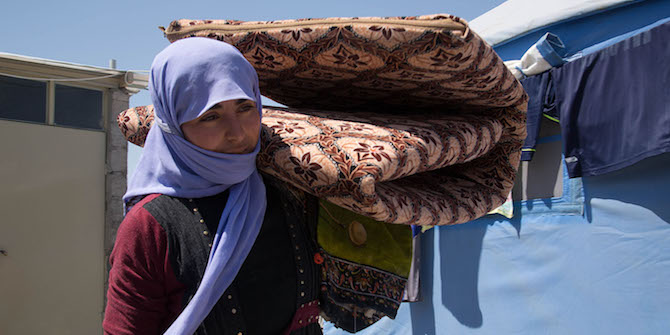
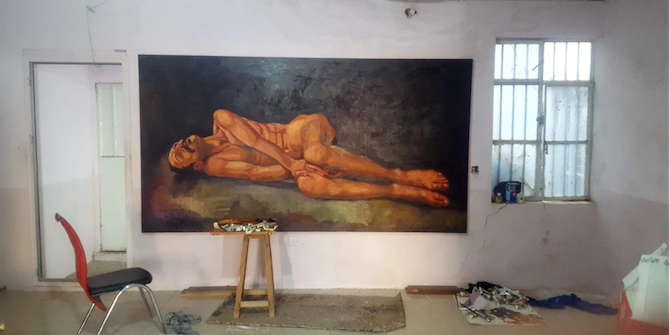
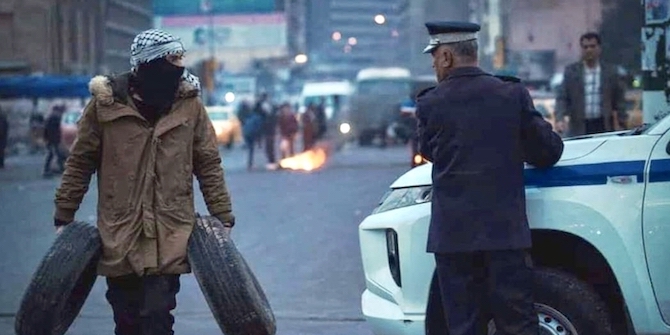
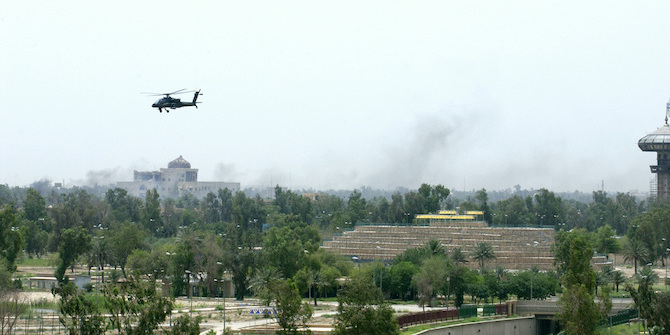
10 Comments